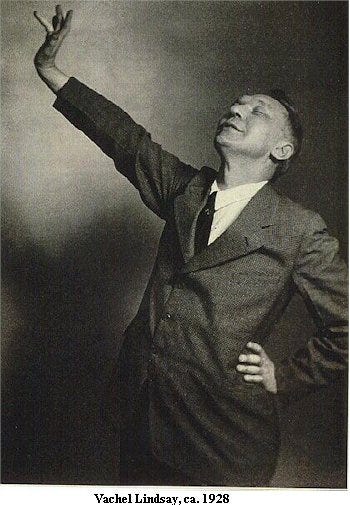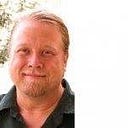Member-only story
The odd life & tragic death of America’s greatest forgotten poet

On the streets of New York City in 1905, a medical school dropout from Springfield, Illinois began bartering self-published and self-printed pamphlets of poems in exchange for bread and a roof over his head.
That would be a recipe for starvation today, but people appreciated poetry more then than they do now. Vachel Lindsay found enough takers to get by, and he learned to promote his pamphlets through dramatic live performances of his poems.
His act bore little resemblance to a modern poetry reading. With his poems committed to memory, he did not need a text. Nor did he merely recite verse. Instead, with his remarkable and versatile voice, this Homer of the Midwest weaved a spell: he sang and chanted, boomed and whooped, whispered and warbled, shouted and cried, declaimed and exclaimed. Utterly uninhibited, he hammed it up, throwing his whole body into the performance, punctuating his poetry with dramatic gesticulations. Lindsay called it “Higher Vaudeville” or “singing poetry.”

The Prairie Troubadour took his act on the road, walking from town to town, selling pamphlets and singing poetry in exchange for room and board. He told prospective hosts he would put in an honest half-day of manual labor in the morning if that night’s performance failed to satisfy.
From 1906 through 1912, Lindsay criss-crossed the country, trudging from Florida to Kentucky, from New York to Ohio, and from Illinois to New Mexico.
Eventually, mainstream publications began printing his poems and paying him for the privilege. He received critical acclaim from William Butler Yeats, one of the most famous poets of the time. In 1915, he performed for President Woodrow Wilson and his Cabinet.
Like Walt Whitman before him, Lindsay wrote quintessentially American verse, bold and muscular, wading fearlessly into the political, cultural and moral currents of his day. Consider, for example, one of his finest short poems, entitled “Why I Voted the Socialist Ticket”:
